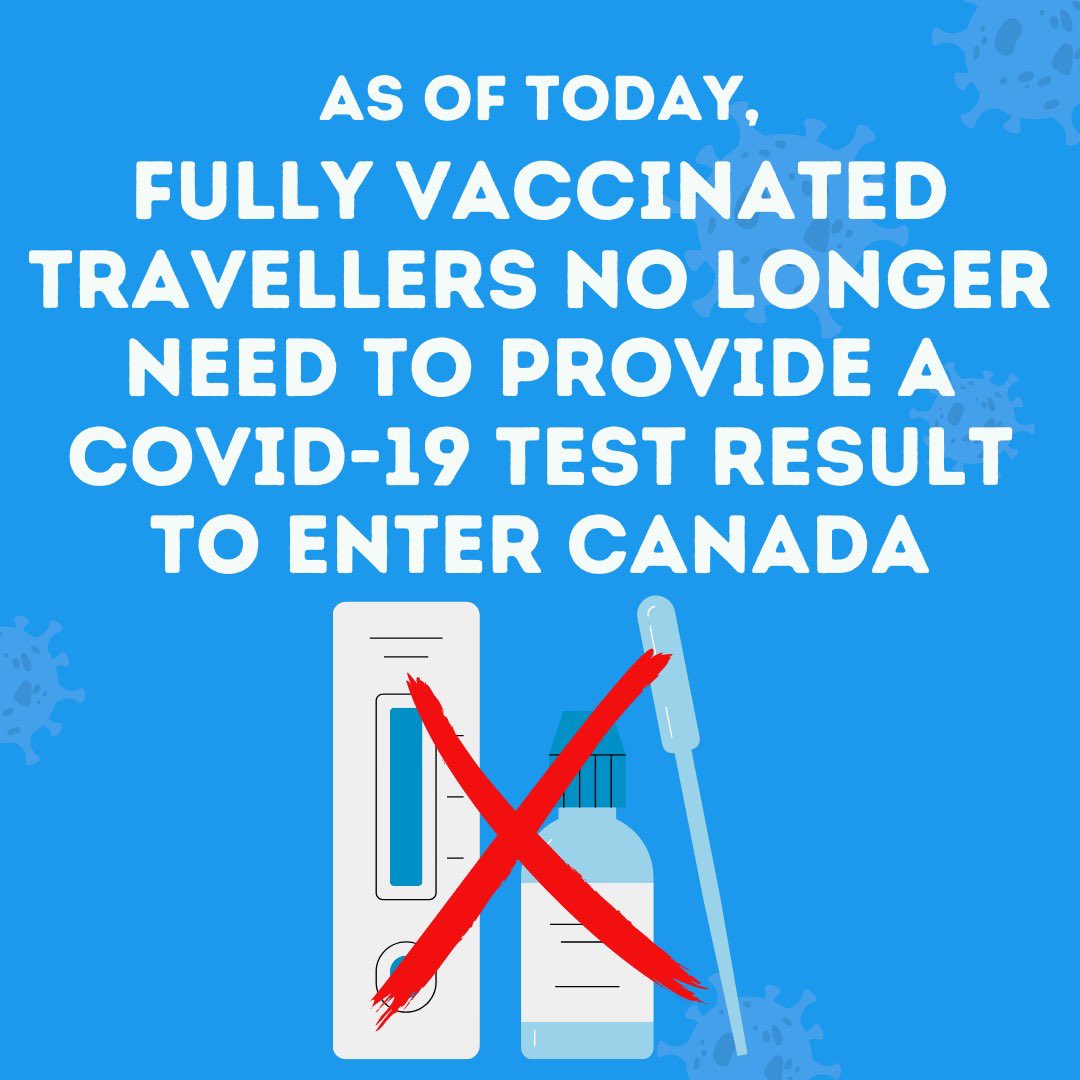
Beginning April 1, fully vaccinated travellers coming to Canada will no longer need to provide a pre-arrival negative COVID-19 test.
This decision to ease Canada’s border screening measures was announced on March 17 by the Minister of Health, Jean-Yves Duclos.
Currently, travellers wishing to enter the country by air, land or water must provide a valid pre-entry test, performed 72 hours before arrival, or an antigenic test result, performed the day before departure. These tests must be administered at health facilities or through a telehealth service.
“Adjustments to Canada’s border measures are made possible by a number of factors, including Canada’s high vaccination rate, the increasing availability and use of rapid tests to detect infection, decreasing hospitalizations and growing domestic availability of treatments for COVID-19. As vaccination levels and healthcare system capacity improve, we will continue to consider further easing of measures at the borders-and when to adjust those measures-to keep the people in Canada safe,” he said in a press release.
Vaccination requirements for travellers entering Canada remain in place. There are very few exemptions from entry requirement for unvaccinated foreign travellers, amongst them are Ukrainian citizens, temporary foreign workers coming to work in the agricultural or food industry, and people who regularly cross the border for work.
Unvaccinated or partially vaccinated travellers are still required to be tested on arrival and remain in quarantine for 14 days. They also need to retest on the eighth day of their quarantine.
To be considered fully vaccinated, the Canadian government requires that travellers have received a full recommended dose of one of the following vaccines:
- AstraZeneca/COVISHIELD
- Bharat Biotech
- Janssen/Johnson & Johnson
- Moderna
- Novavax
- Pfizer-BioNTech
- Sinopharm BIBP
- Sinovac

